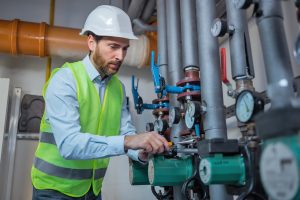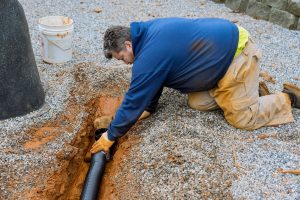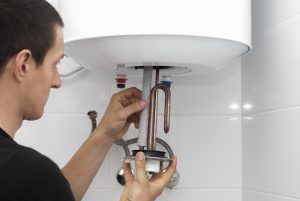Everyone talks about how great owning your own home is and how much they supposedly save by paying a mortgage. However, did you know that your landlord has to pay for the functioning aspects of the home? Stuff like plumbing emergencies, electrical and HVAC issues, as well as any foundation cracks that may occur.
This can save you big money in the long run, especially when you factor in parts, labor, and possible repairs from damage. Many people don’t talk about this and it is somewhat kept quiet because they don’t know their rights.
Even if a lease states that major repairs are in the tenants' hands, state law will supersede it, meaning the repairs still fall back into the landlord’s hands and that part of the lease is unenforceable. We’re going to take a deeper look into what is covered by the landlord and what you need to be aware of! Keep reading for more information!
What The Landlord MUST Pay For
 We mentioned that the landlord must ensure the home is inhabitable for the tenants, but what exactly does that mean? It comes down to the safety of the home and the fact it must be livable.
We mentioned that the landlord must ensure the home is inhabitable for the tenants, but what exactly does that mean? It comes down to the safety of the home and the fact it must be livable.
If you live in an area that air conditioning units are standard, it must work; there cannot be a problem with mold; pipes and plumbing must be in good working order--no leaks, water damage that can cause mold, or floods due to a burst pipe.
The electrical wiring also has to be intact and safe for use. Although failure to provide such conditions is a breach of contract and code, it doesn’t mean you can withhold rent.
On the subject of flooding from a problematic pipe, if the landlord knew about it beforehand and did not take the proper steps, reimbursement for any damage to property may be covered. It also may be covered by your renter’s insurance.
When Landlords Must Pay For Repairs
 If there is a minor plumbing issue such as a clogged drain or a failed garbage disposal, there is a chance you will have to fork over the money.
If there is a minor plumbing issue such as a clogged drain or a failed garbage disposal, there is a chance you will have to fork over the money.
However, if plumbing repairs are high dollar and are required to make the home livable, it is likely on the landlord’s dime.
When you own your own home, you pay for the smaller repairs AND the bigger ones, including repiping, hot water tank replacements, and repairing burst pipes.
The Local Stipulations
 As mentioned, a landlord is to ensure the house is inhabitable for the tenants. Unfortunately, this is difficult to enforce and in some areas, it is almost impossible.
As mentioned, a landlord is to ensure the house is inhabitable for the tenants. Unfortunately, this is difficult to enforce and in some areas, it is almost impossible.
Some states or cities can demand that the landlord prorate the rent owed based on the number of days the home was unlivable, while some states may be a ‘right to deduct’ state.
This basically means that if you have given ample notice that a repair is needed, you may pay for it personally and it may be deducted from your next month’s rent.
Unfortunately, this deduction can sometimes become risky and cause tensions to rise, making it more difficult to have future repairs made and paid for. Ultimately, you must pay your rent and cannot use it as a bargaining chip to force your landlord to fix things.
If you are facing a plumbing emergency in your home, or are dealing with a problem that may cause serious damage, don’t risk a slow response from the landlord. Simply call for emergency plumbing services! We want to know--what has been your worst landlord-plumbing experience? Tell us in the comments!




